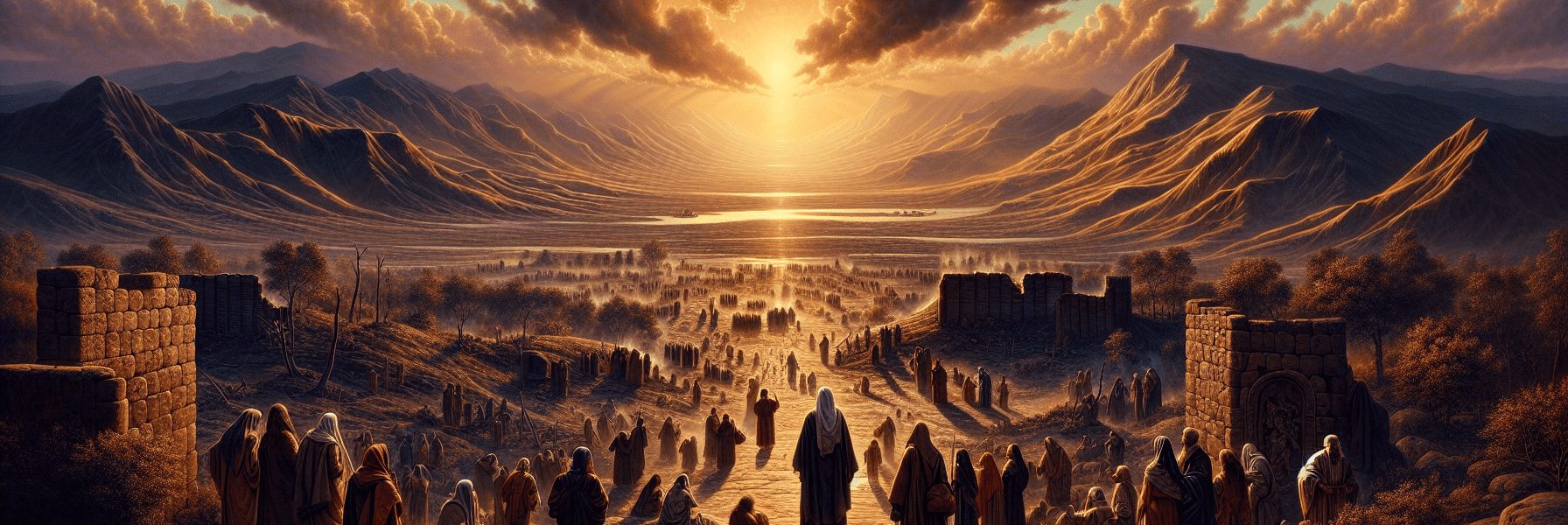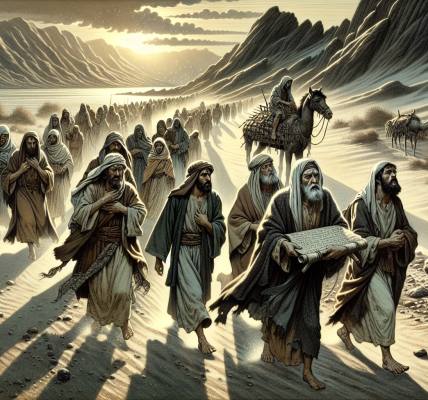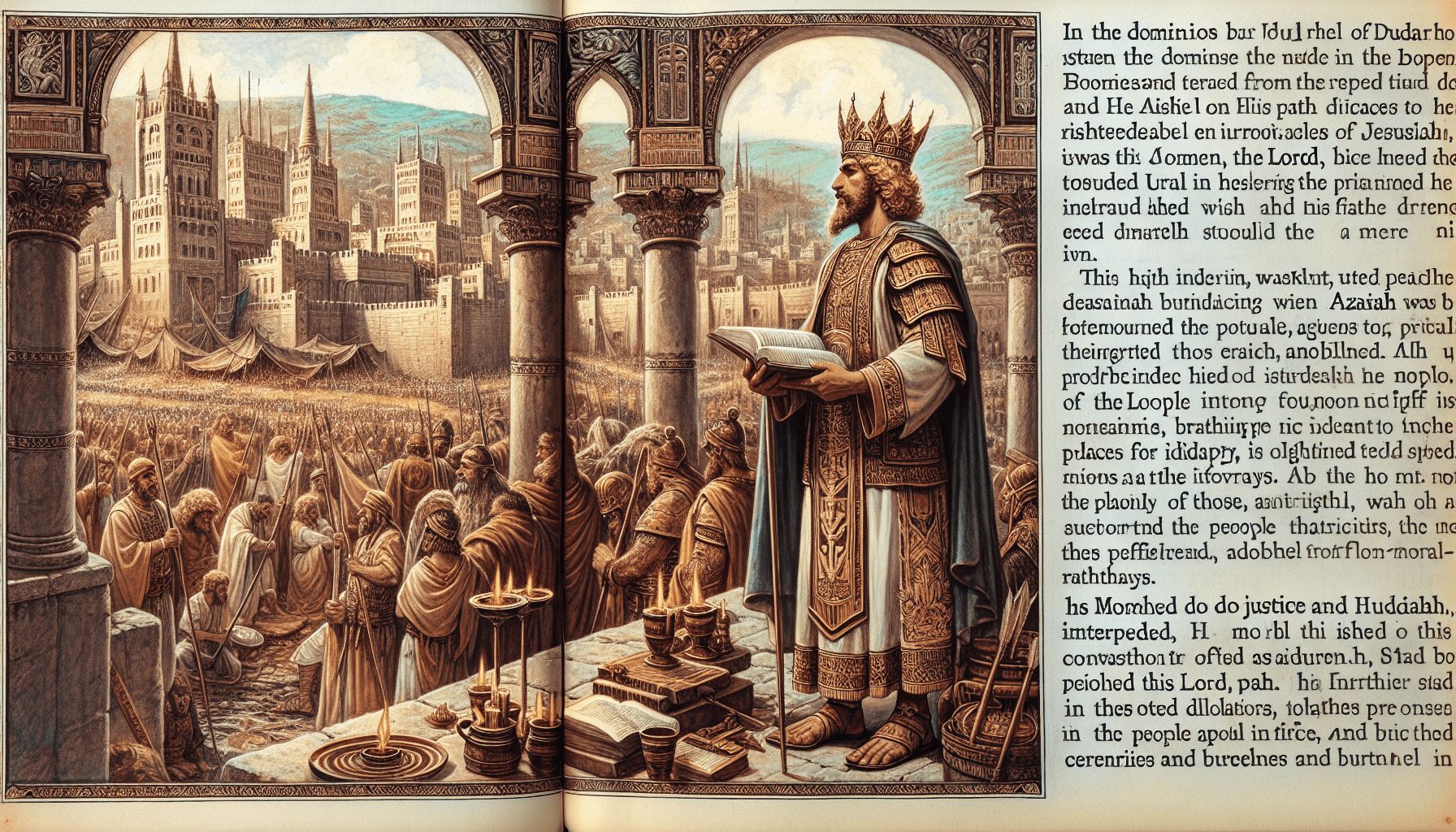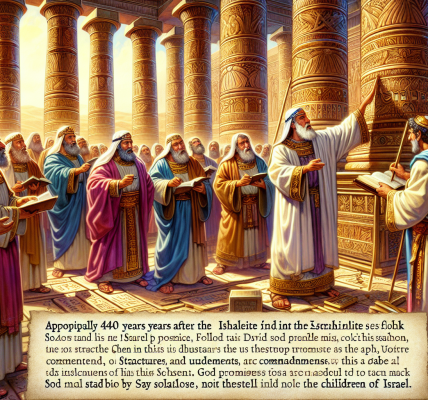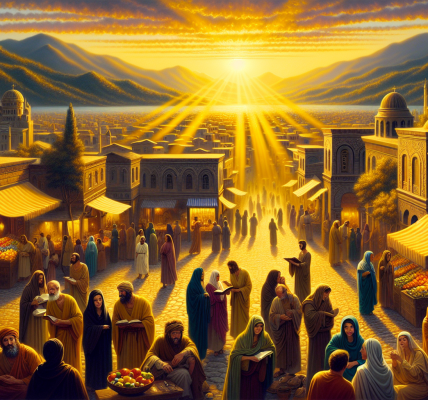**The Promise of Restoration: A New Covenant**
The sun hung low over the hills of Judah, casting long shadows across the barren land. The once-thriving cities now lay in ruins, their walls broken, their gates burned. The people of Israel had been scattered—some to the far reaches of Babylon, others hiding in the hills, their hearts heavy with sorrow. The prophets had warned them, but they had not listened. Now, the weight of exile pressed upon them like a yoke of iron.
Yet, even in the midst of desolation, the voice of the Lord came to Jeremiah, not with words of wrath, but with a promise so tender it could mend the most shattered of hearts.
*”At that time,”* declares the Lord, *”I will be the God of all the families of Israel, and they shall be My people.”*
Jeremiah stood in the quiet of his chamber, the scroll before him trembling under his fingers as the Spirit moved within him. The Lord was speaking of a day beyond the suffering, a day when tears would be wiped away and the land would sing with joy once more.
*”Thus says the Lord: The people who survived the sword found grace in the wilderness; when Israel sought for rest, the Lord appeared to him from afar.”*
In his vision, Jeremiah saw them—the weary exiles, their feet bloodied from the long road, their faces streaked with dust and grief. But the Lord was leading them like a shepherd, guiding them beside streams of water, on a straight path where they would not stumble. For the Lord loved them with an everlasting love.
*”I have loved you with an everlasting love; therefore, with lovingkindness I have drawn you.”*
The prophet’s heart swelled. This was no fleeting mercy, no temporary reprieve. The Lord’s love was as unchanging as the stars above, as enduring as the mountains.
Then came the promise that would echo through the ages:
*”Behold, the days are coming,”* says the Lord, *”when I will make a new covenant with the house of Israel and with the house of Judah.”*
Not like the covenant of old, carved on tablets of stone, which the people had broken despite the wonders they had seen. No, this covenant would be written on their hearts, etched into their very souls.
*”I will put My law in their minds, and write it on their hearts. And I will be their God, and they shall be My people.”*
Jeremiah closed his eyes, seeing the fulfillment of this promise—a people no longer bound by outward commandments alone, but transformed from within. No longer would a man teach his neighbor, saying, *”Know the Lord,”* for all would know Him, from the least to the greatest. Their sins would be forgiven, remembered no more.
The land itself seemed to stir at the proclamation. The vineyards would flourish again, the farmers would sow in peace, and the laughter of children would fill the streets. Rachel, weeping for her children in Ramah, would be comforted, for her offspring would return to their own land.
And though the road ahead was still marked with hardship, the prophet knew this: the Lord’s plans were steadfast. The One who scattered would also gather. The One who disciplined would also embrace.
For the Lord had spoken:
*”I will turn their mourning into joy, and will comfort them, and make them rejoice from their sorrow.”*
And so, with the ink still fresh upon the scroll, Jeremiah lifted his voice, not in lament, but in hope—a hope as unshakable as the word of the living God.
